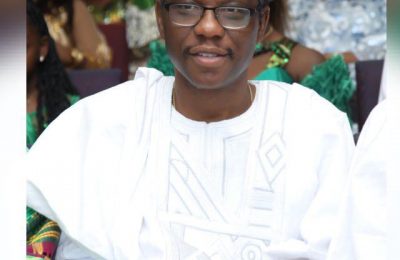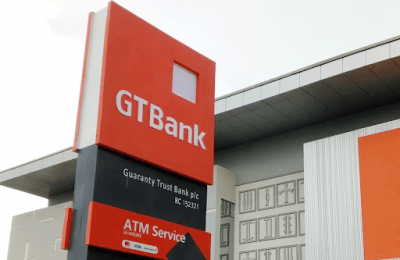IN a statement marking this year’s World Cancer Day, the World Health Organisation’s (WHO) Regional Director for Africa, Dr. Matshidiso Moeti, revealed that an estimated 700,000 persons die out of the 1.1 million new cancer cases recorded in Africa yearly! That is not all: going by current projections, Africa will account for nearly 50 percent of the global childhood cancer burden by 2050. The auguries are indeed portentous: childhood cancer incidents in sub-Saharan Africa is estimated at 56.3 per million population, and unless there are urgent and bold interventions to reverse the trend, data estimates project a considerable increase in cancer mortality to nearly one million deaths per year by 2030. Said Moeti: “We should recall that the most common cancers in adults include breast (16.5 percent), cervical (13.1 percent), prostate (9.4 percent), Colorectal (six percent), and liver (4.6 percent) cancers, contributing to nearly half of the new cancer cases.”
Moeti noted that while 12 countries in Africa had valid National Cancer Control Plans, 11 additional countries were being supported by the WHO in developing or updating their National Cancer Control Plans, with the support aimed at aligning the plans to the global cancer initiatives, coupled with the presence of governance structures to implement cancer plans. She decried the continent’s low availability of population-based cancer registries, limited health promotion, inadequate access to primary prevention, and late detection services, adding that the scarcity of diagnostic facilities increased delay in diagnosis and treatment of cancer. She harped on the need to develop and update national cancer control plans, provide sustainable financing and invest in cancer registration across the continent.
According to the WHO’s fact sheet, cancer is a leading cause of death worldwide, accounting for nearly 10 million deaths in 2020, or nearly one in six deaths. The most common cancers, it says, are breast, lung, colon and rectum and prostate cancers. In July last year, the WHO warned that preventing and treating breast cancer remained a pressing public wellness issue in Sub-Saharan Africa. In a report titled “Addressing inequities in breast cancer treatment in Sub-Saharan Africa: Insights from a breast cancer surgeon in Nairobi,” the global agency lamented that breast cancer survival rates five years after diagnosis stood at a dismal 40 per cent in Sub-Saharan Africa compared to over 90 per cent in most high-income countries. It submitted, quite rightly in our view, that in countries showing a successful reduction in mortalities, most patients were diagnosed at an early stage. Again, it noted that late diagnosis and poor access to quality treatment were worsening the situation. In Nigeria, for instance, cancer kills no fewer than 78,000 persons and infects 125,000 new persons yearly with breast, prostate, cervical and Non-Hodgkin’s lymphoma accounting for approximately half of all cancer case. And treatment is prohibitively expensive: radiotherapy costs about N1 million per treatment cycle while the average cost of treating cancer comprehensively for an individual is estimated at N20 million. Currently, Nigeria reportedly has only four functional radiotherapy machines serving over 200 million persons across the 36 states and Federal Capital Territory (FCT), Abuja.

If over 700,000 Africans die yearly from cancer with this reflecting not just the growing number of cases among Africans but more crucially the sub-optimal nature of the medical processes for treating the ailment, it is time to declare a state of emergency on the situation. Across the continent, because of the prohibitive cost, only a few people can even contemplate cancer treatment. Rather than seeking treatment, many Africans diagnosed of cancer simply resign to fate, taking the diagnosis as a death verdict. This situation is unacceptable. The African Union (AU), other regional organisations and governments in Africa have a responsibility to come up with a functional and effective response to mitigate the situation and stop the growing cancer deaths on the continent. It should not be beyond the capacity and capability of Africa and Africans to make the treatment of cancer less prohibitive and accessible to many Africans, like it is done in other climes. This is a responsibility that the leadership in Africa should face squarely.
In this connection, while until now most of the diagnostic kits for cancer and other diseases in Africa were imported from Europe and the United States, it is heartening that the first African-produced tests to diagnose breast cancer and leukaemia are scheduled to become commercially available within months, cutting costs and waiting times for patients across the continent. This is the happy news from Morocco. The fact is well known that Africa’s reliance on imported tests, treatments and vaccines has been a pressing concern for health authorities on the continent since the onset of the COVID-19 pandemic. With an estimated 70 percent of pharmaceutical products and up to 99 percent of vaccines used in African countries being imported, cancer care can only become more prohibitive. Part of the African response should be to invest in research into cancer and other needless ‘death sentences’ on the continent. There should also be enlightenment campaigns on predisposing factors and the value of early detection. Around one-third of deaths from cancer are due to tobacco use, high body mass index, alcohol consumption, low fruit and vegetable intake and lack of physical activity. Crucially, many cancers can be cured if detected early and treated effectively.
It is time to stop the needless loss of human lives.








